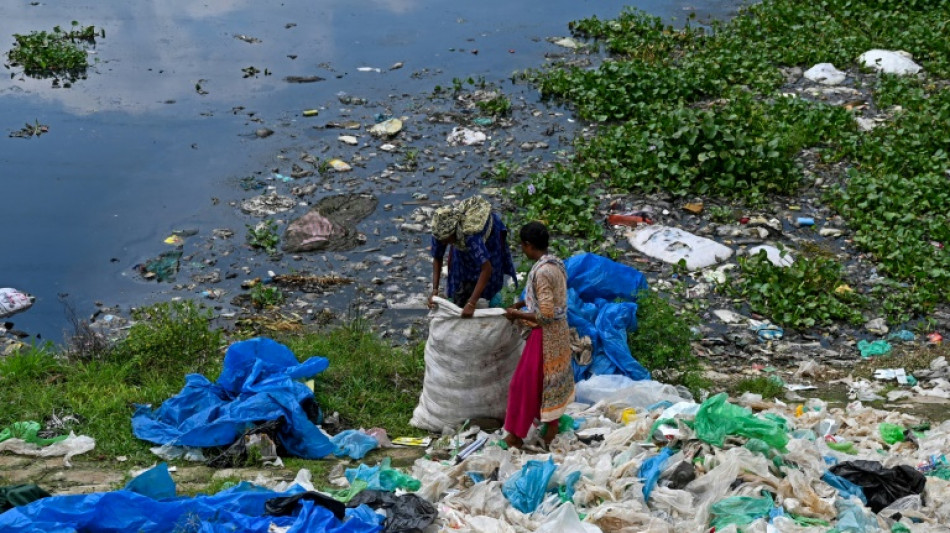
-
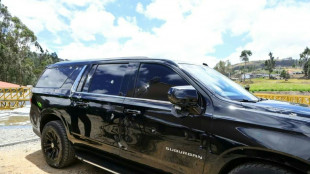 Ecuador president unharmed after apparent gun attack on motorcade
Ecuador president unharmed after apparent gun attack on motorcade
-
Lyon exact revenge on Arsenal, Barca thrash Bayern in women's Champions League

-
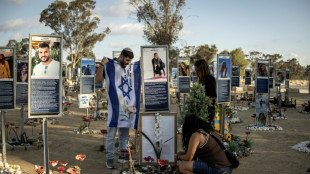 Trump says 'real chance' to end Gaza war as Israel marks attacks anniversary
Trump says 'real chance' to end Gaza war as Israel marks attacks anniversary
-
Gerrard brands failed England generation 'egotistical losers'

-
 NFL fines Cowboys owner Jones $250,000 over gesture to fans
NFL fines Cowboys owner Jones $250,000 over gesture to fans
-
Bengals sign veteran quarterback Flacco after Burrow injury

-
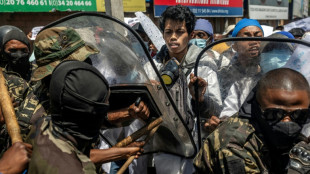 New prime minister inspires little hope in protest-hit Madagascar
New prime minister inspires little hope in protest-hit Madagascar
-
Is Trump planning something big against Venezuela's Maduro?
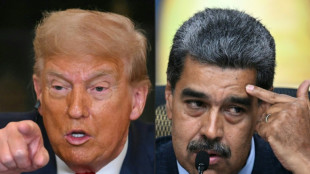
-
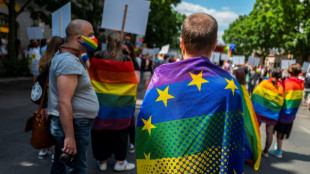 EU wants to crack down on 'conversion therapy'
EU wants to crack down on 'conversion therapy'
-
French sex offender Pelicot says man who abused ex-wife knew she was asleep
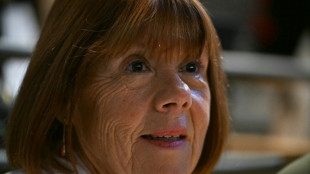
-
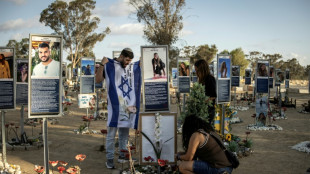 Trump says 'real chance' to end Gaza war as Israel marks Oct 7 anniversary
Trump says 'real chance' to end Gaza war as Israel marks Oct 7 anniversary
-
UK prosecutors to appeal dropped 'terrorism' case against Kneecap rapper

-
 Spain, Inter Miami star Alba retiring at end of season
Spain, Inter Miami star Alba retiring at end of season
-
EU targets foreign steel to rescue struggling sector
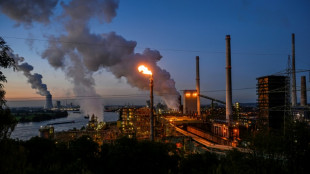
-
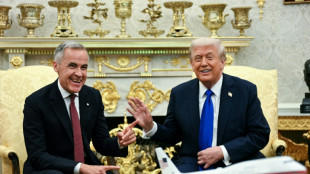 Trump talks up Canada deal chances with visiting PM
Trump talks up Canada deal chances with visiting PM
-
Knight rides her luck as England survive Bangladesh scare
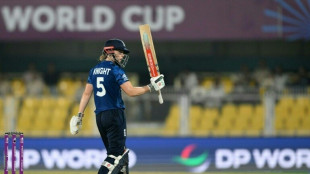
-
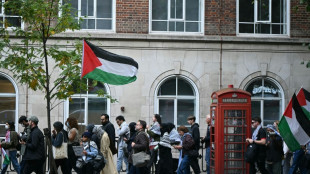 Pro-Gaza protests flare in UK on anniversary of Hamas attack
Pro-Gaza protests flare in UK on anniversary of Hamas attack
-
Top rugby unions warn players against joining rebel R360 competition

-
 Outcast Willis 'not overthinking' England absence despite Top 14 clean sweep
Outcast Willis 'not overthinking' England absence despite Top 14 clean sweep
-
Trump says 'real chance' of Gaza peace deal
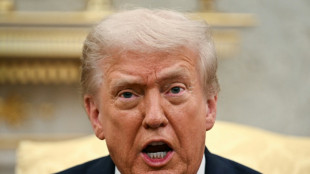
-
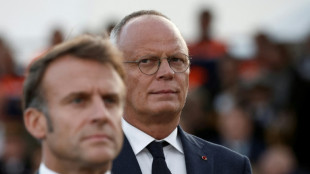 Macron urged to quit to end France political crisis
Macron urged to quit to end France political crisis
-
No.1 Scheffler seeks three-peat at World Challenge

-
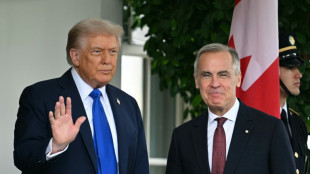 Canadian PM visits Trump in bid to ease tariffs
Canadian PM visits Trump in bid to ease tariffs
-
Stocks falter, gold shines as traders weigh political turmoil
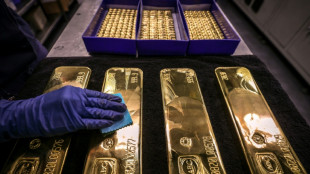
-
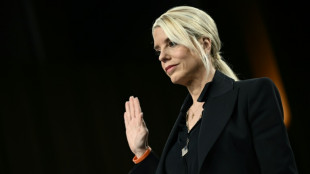 Senators accuse US attorney general of politicizing justice
Senators accuse US attorney general of politicizing justice
-
LeBron's 'decision of all decisions' a PR stunt

-
 Observing quantum weirdness in our world: Nobel physics explained
Observing quantum weirdness in our world: Nobel physics explained
-
WTO hikes 2025 trade growth outlook but tariffs to bite in 2026
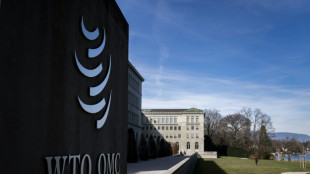
-
 US Supreme Court hears challenge to 'conversion therapy' ban for minors
US Supreme Court hears challenge to 'conversion therapy' ban for minors
-
Italy's Gattuso expresses Gaza heartache ahead of World Cup qualifier with Israel
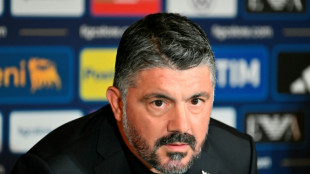
-
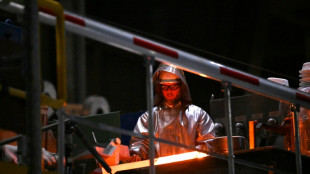 EU targets foreign steel to shield struggling sector
EU targets foreign steel to shield struggling sector
-
Djokovic vanquishes exhaustion to push through to Shanghai quarterfinals
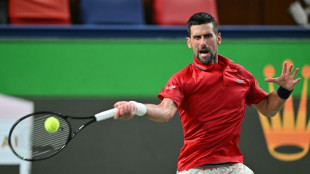
-
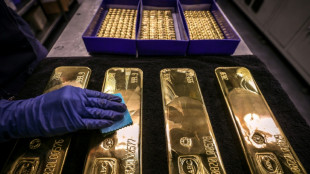 Stocks, gold rise as investors weigh AI boom, political turmoil
Stocks, gold rise as investors weigh AI boom, political turmoil
-
Swiatek coasts through Wuhan debut while heat wilts players
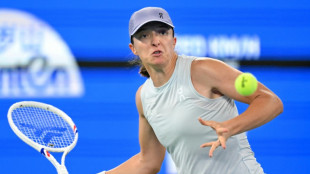
-
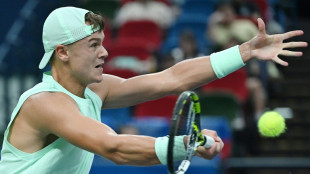 Denmark's Rune calls for heat rule at Shanghai Masters
Denmark's Rune calls for heat rule at Shanghai Masters
-
Japanese football official sentenced for viewing child sexual abuse images
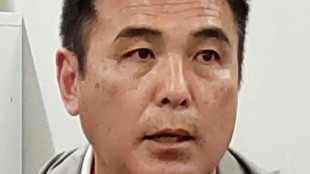
-
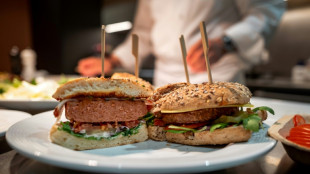 'Veggie burgers' face grilling in EU parliament
'Veggie burgers' face grilling in EU parliament
-
Trio wins physics Nobel for quantum mechanical tunnelling

-
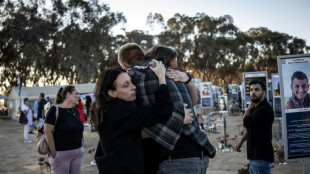 Two years after Hamas attack, Israelis mourn at Nova massacre site
Two years after Hamas attack, Israelis mourn at Nova massacre site
-
German factory orders drop in new blow to Merz
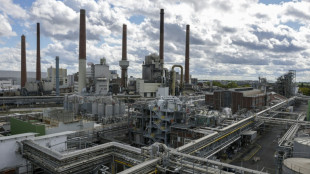
-
 Man City star Stones considered retiring after injury woes
Man City star Stones considered retiring after injury woes
-
Kane could extend Bayern stay as interest in Premier League cools
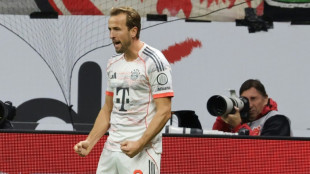
-
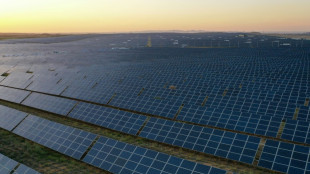 Renewables overtake coal but growth slows: reports
Renewables overtake coal but growth slows: reports
-
Extreme rains hit India's premier Darjeeling tea estates
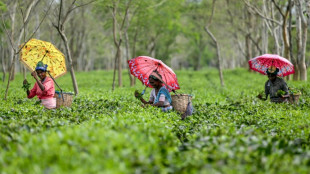
-
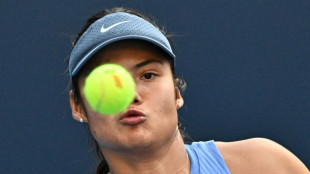 Raducanu retires from opening match in Wuhan heat with dizziness
Raducanu retires from opening match in Wuhan heat with dizziness
-
UK's Starmer condemns pro-Palestinian protests on Oct 7 anniversary

-
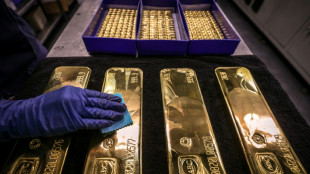 Tokyo stocks hit new record as markets extend global rally
Tokyo stocks hit new record as markets extend global rally
-
Japan's Takaichi eyes expanding coalition, reports say
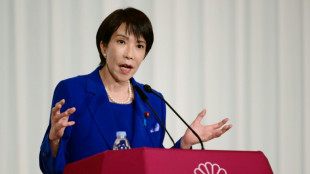
-
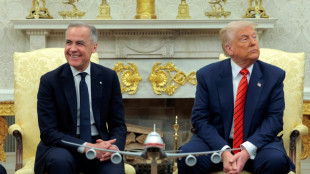 Canadian PM to visit White House to talk tariffs
Canadian PM to visit White House to talk tariffs
-
Indonesia school collapse toll hits 67 as search ends
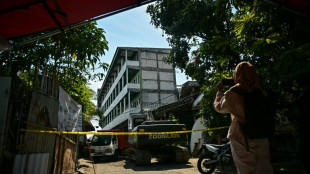

Plastic pollution plague blights Asia
Kulsum Beghum sorts waste at a landfill in Dhaka. Her blood contains 650 microplastic particles per millilitre, according to an analysis funded by a waste pickers' union.
"Plastic is not good for me," she told AFP through a translator during an interview in Geneva, where she came to bear witness on the sidelines of 184-nation talks to forge the world's first global plastic pollution treaty.
"It started 30 years ago" in the Bangladeshi capital, the 55-year-old said, supported by her union.
At first, "plastic was for cooking oil and soft drinks", she recalled. Then came shopping bags, which replaced traditional jute bags. "We were attracted to plastic, it was so beautiful!"
Today, in one of the most economically fragile countries on the planet, plastic is everywhere: lining the streets, strewn across beaches, clogging the drains.
Alamgir Hossain, a member of an association affiliated with the International Alliance of Waste Pickers, showed photos on her phone.
Beghum wants non-recyclable plastics banned, pointing out that she cannot resell them and they have no market value.
"No one collects them," she said.
- 'Disaster for the environment' -
Indumathi from Bangalore in southern India, who did not give her full name, concurs: 60 percent of the plastic waste that arrives at the sorting centre she set up is non-recyclable, she told AFP.
This includes crisp packets made of a mixture of aluminium and plastic, and other products using "multi-layer" plastic. "No one picks them up from the streets and there are a lot of them," she said.
Scientists attending the treaty negotiations at the United Nations in Geneva back her up.
"Multi-layer plastic bags are a disaster for the environment," said Stephanie Reynaud, a polymer chemistry researcher at France's National Centre for Scientific Research.
"They cannot be recycled."
Indamathi was also critical of what she described as public policy failures.
After single-use bags were banned in her country in 2014, for example, she saw the arrival of black or transparent polypropylene lunchboxes, which are also single-use.
"We're seeing more and more of them on the streets and in landfills. They've replaced shopping bags," she said.
According to a recent OECD report on plastic in Southeast Asia, "more ambitious public policies could reduce waste by more than 95 percent by 2050" in the region, where plastic consumption increased ninefold since 1990 to 152 million tonnes in 2022.
- Plastics 'colonialism' -
Consumer demand is not to blame, argues Seema Prabhu of the Swiss-based NGO Trash Heroes, which works mainly in Southeast Asian countries.
The market has been flooded with single-use plastic replacing traditional items in Asia, such as banana leaf packaging in Thailand and Indonesia, and metal lunch boxes in India.
"It's a new colonialism that is eroding traditional cultures," she told AFP. According to her, more jobs could be created "in a reuse economy than in a single-use economy".
Single-dose "sachets" of shampoo, laundry detergent or sauces are a scourge, said Yuyun Ismawati Drwiega, an Indonesian who co-chairs the International Pollutants Elimination Network NGO.
"They are the smallest plastic items with which the industry has poisoned us -- easy to carry, easy to obtain; every kiosk sells them," she told AFP.
In Indonesia, collection and sorting centres specialising in sachets have failed to stem the tide, mostly shutting down not long after opening.
In Bali, where Ismawati Drwiega lives, she organises guided tours that she has nicknamed "Beauty and the Beast".
The beauty is the beaches and luxury hotels; the beast is the back streets, the tofu factories that use plastic briquettes as fuel, and the rubbish dumps.
H.Kuenzler--VB
